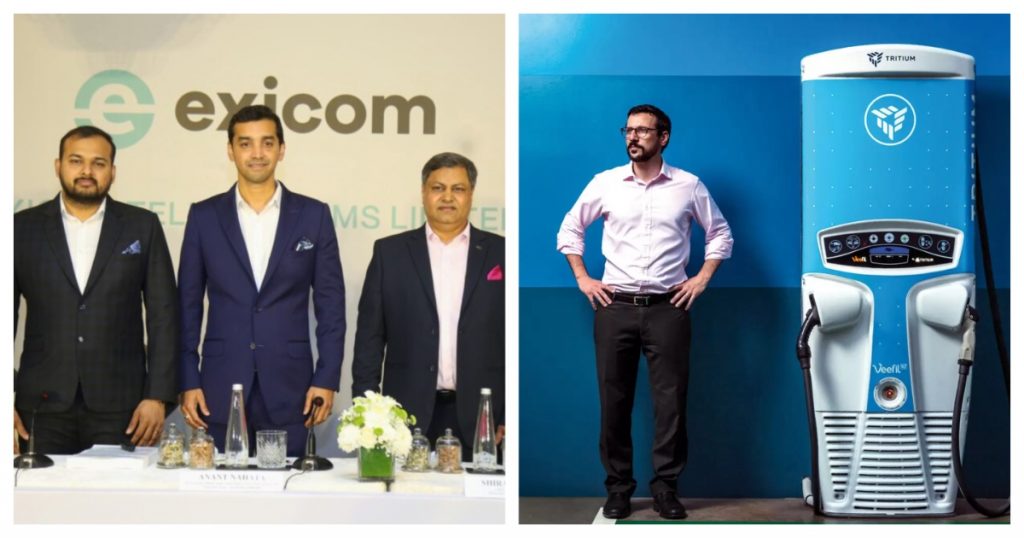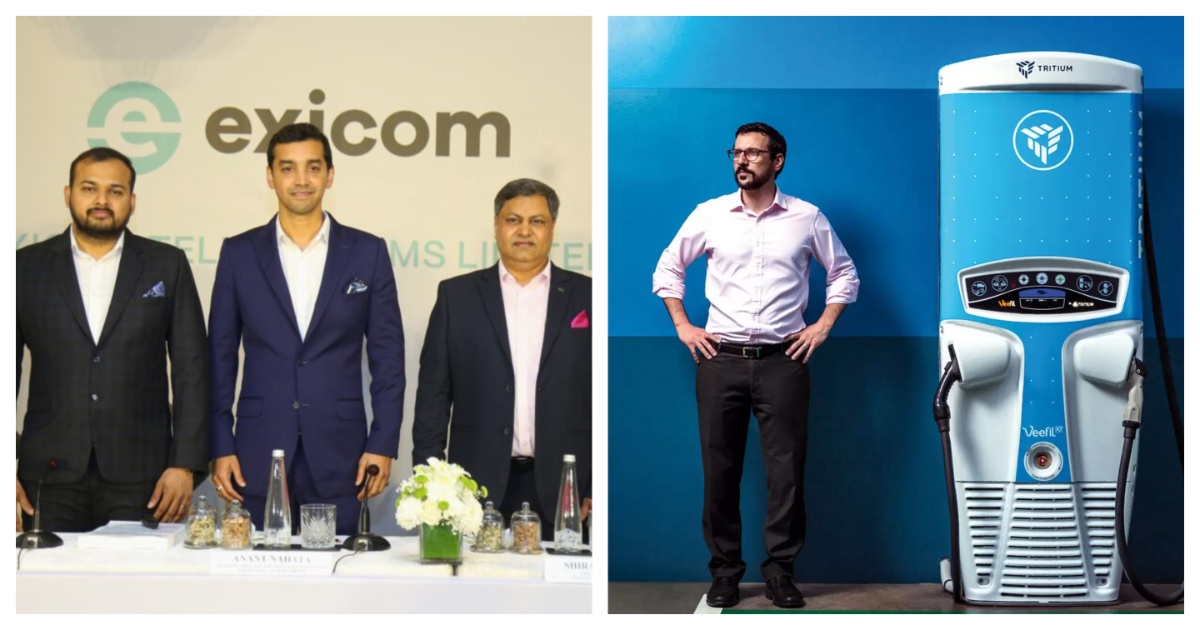There’s a fair bit of attention on the battle that’s playing out among different automotive EV companies in India, but India’s EV infrastructure companies are quietly making some moves of their own.
India-based Exicom, which manufactures EV chargers, has acquired US-based Tritium for $37 million (Rs. 310 crore). Tritium designs and manufactures proprietary hardware and software to create DC fast chargers for electric vehicles. It has sold 13,000 chargers in 47 countries around the world.

“This strategic investment highlights Exicom’s robust positioning in international markets and our commitment to expanding operational capabilities across diverse geographies,” said Exicom CEO and MD Anant Nahata. “The comprehensive deal encompassing four key regions ‘the UK, the Netherlands, the United States, and Australia’ amounts to USD 37 million,” he added.
Tritium Charging had been founded in 2001 with a mission to electrify transportation. It had even been listed on the Nasdaq as ‘Tritium DCFC’. The company however entered insolvency on 18 April 2024. Tritium’s business and assets as a going concern have now been snapped up by Exicom. Exicom will absorb Tritium’s 300 employees, and also its production plant, equipment, and a factory in Tennessee, USA.
“Exicom has successfully acquired Tritium’s facility in Tennessee,” Nahata said. “We are dedicated to expanding our manufacturing footprint with an upcoming facility in Hyderabad, India, set to become operational by the end of calendar year 2025. This expansion will allow us to localize Tritium’s global expertise and address the increasing demand for innovative charging solutions,” he added. Nahata said that Tritium’s chargers were ideal for India’s challenging weather conditions where temperatures vary from -20 degrees Celsius to 55 degree Celsius, and the acquisition will further improve the reliability and efficiency of Indian EV infrastructure.
Exicom is a leading manufacturer of EV chargers in India. It claims a 40 percent share in the EV residential charging market, and a 25 percent share in the EV public charging segment. Its partners include MG, Tata, Kia Motors, Mercedes Benz, JBM, Volvo, Mahindra and Hyundai. The company is listed on the stock exchanges, and has a market cap of Rs. 4,000 crore. Earlier this year, Exicom had claimed to launch India’s fastest DC charger for EVs with a capacity of 400 kW.
A frenetic battle is currently underway in India’s EV space. Incumbents like Bajaj and TVS are looking to take on EV upstarts like Ola and Ather, and both sides are looking to wrest as much market-share as they can. But even as they compete among themselves, overall EV penetration is growing, which increases opportunities for EV-affiliated companies like those making electric chargers. And this general push towards EVs could end up creating strong tailwinds for companies that provide products or services that stand to benefit from the EV revolution.
